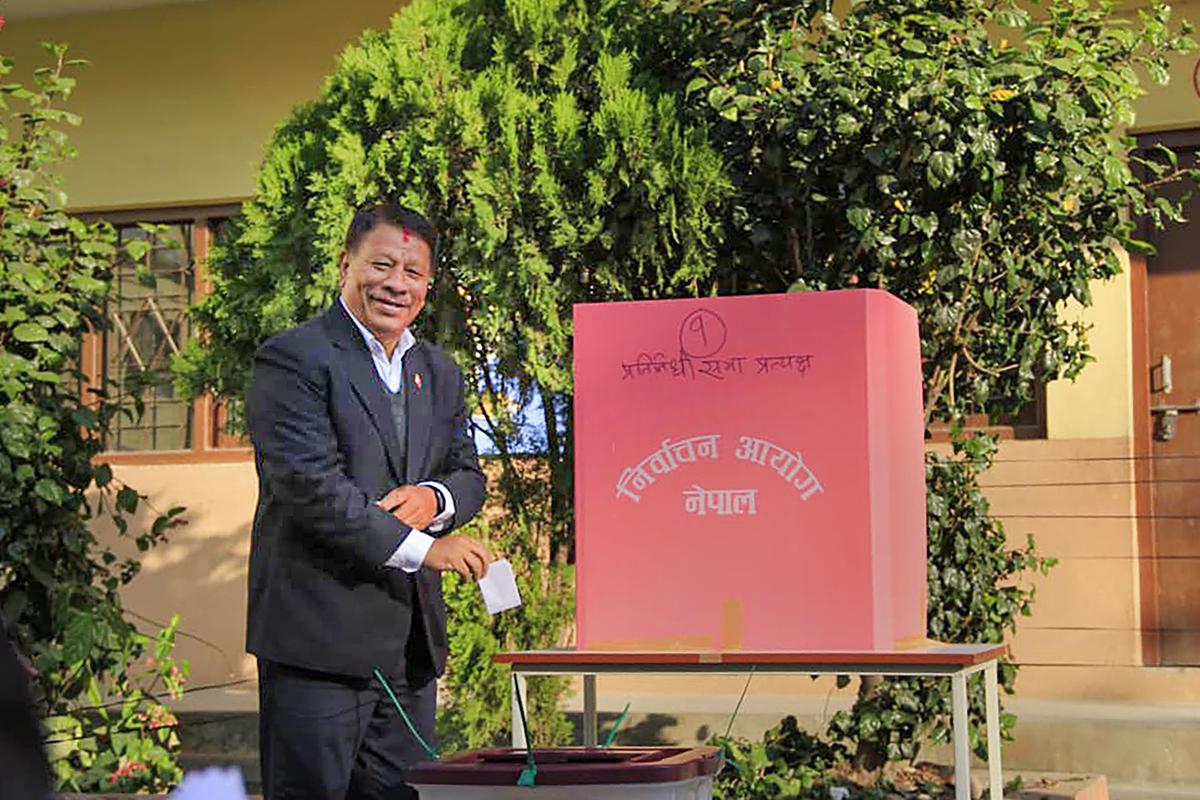
Nepal should develop friendly relations with India and China for prosperity: Prakash Man Singh
The Hindu
He said that as political parties failed to deliver service and fulfil the aspiration of the people, the voters have expressed their dissatisfaction by choosing candidates from new parties and independents in the general elections.
Prakash Man Singh, a senior leader of the ruling Nepali Congress, has said that the new government in Nepal should develop cordial and friendly relationships with both India and China and seek support from all friendly countries for the landlocked Himalayan nation's prosperity.
Mr. Singh, a former Deputy Prime Minister, won the House of Representatives election with a margin of just 127 votes against former BBC Nepali Service journalist Ravindra Mishra, a candidate fielded by the pro-monarchy Rastriya Prajatantra Party (RPP) in the November 20 general elections.
“If an appropriate opportunity comes, I will contest the election to the Parliamentary Party leader to head the new government,” Mr. Singh told PTI while responding to a question at his residence in Kathmandu shortly after winning the election.
He said that "the new government needs to develop cordial and friendly relationships with both the neighbours, India and China and seek the support, assistance from all the friendly countries for attaining economic prosperity and development of the country."
The bilateral ties between New Delhi and Kathmandu had come under strain under then Nepalese Prime Minister K. P. Sharma Oli’s government, which came out with a new map showing Lipulekh, Kalapani and Limpiyadhura as Nepal’s territories in 2020.
There were frequent reports about China encroaching on Nepalese territory in the Humla district as well as in the international media, which have often been denied by the Chinese embassy in Kathmandu.
Responding to another question, the 66-year-old senior leader admitted that as political parties failed to deliver service and fulfil the aspiration of the people, the voters have expressed their dissatisfaction by choosing candidates from new parties and independents in the general elections.













